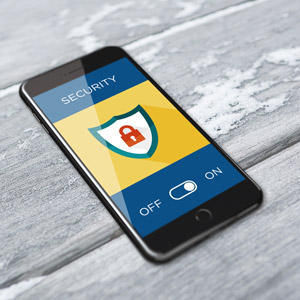
More bad news on bad news, this one concerning the social media accounts of high-profile figures. You’ve probably heard all about it. Last week, roughly 130 Twitter accounts—users including individuals Elon Musk and Joe Biden and even large companies Uber and Apple—were hacked. The FBI is currently investigating, and Twitter has said it believes the attach was a highly coordinated one.
So, let’s talk about the safety and security of your accounts, shall we? Although maybe you aren’t likely to be the high-profile target of a hack urging monetary contributions to cryptocurrency accounts as last week’s was, your accounts may still be vulnerable to hackers seeking financial information, bots looking to send out some spammy nonsense, or even someone you know, whether they’re being malicious or just rummaging around.
Especially at a time when we aren’t all working in offices or in stores, it’s not hard for things to slip—we feel a little more relaxed, maybe a little less regimented. Maybe you had to let your dedicated social media person go or an intern’s tenure is up. Maybe you logged in on a friend’s or a public computer at some point and forgot about it. Maybe none of this describes you, but that doesn’t mean a reset isn’t a good idea.
Here are a few quick checks you can do to ensure your social media accounts are protected. Granted, users may have been powerless to stop the recent hack, but taking the necessary precautions nonetheless is smart and simple and could save you a huge headache.
First and foremost, change your password. Just do it. Make it a complicated one, one that isn’t used elsewhere, and make sure you have it saved somewhere that others can’t access. I like the One Password app, and for those who use Apple products, you can let its password feature both suggest and store your passwords for you. These passwords are accessible by using either your face or fingerprint (or pin) to unlock and with your Apple ID. Again, make sure that’s secure too.
Secondly, ensure you have two-factor authentication enabled on all your social media accounts. Yes, it’s an extra step, but it could protect you should someone snag your password. Usually this involves entering a code texted to you upon sign-in; it could also be a phone call or email. Most of the time we’re signed in to our accounts 24/7 on our smart devices anyway, so you shouldn’t have to do it often.
Do an inventory of who has your account information. Once you change your password, you’ll have to alert any other users (employees, for example) of the change, so only give it to those who require it. But there are a few other important steps to keeping your accounts safe, especially when they’re shared with other users. Check to make sure your authorized user list is updated, and remove any users who are no longer granted access. In addition, make sure the users who are authorized don’t have full administrative access—it should be only the account holder—you—who is able to grant access to new users and make any major changes (unless of course, you trust your social media manager without question).
For a company like Twitter, vetting its employees and performing yearly security checks and training is absolutely vital. As an independent jewelry store, you may not be faced with the same dilemma (mainly because you’re not granting your employees access to literally every account in the Twitterverse), but undermining the seriousness of security and the standards with which you uphold your employees should be beneficial all the same. All it takes is one errant social post to draw scrutiny—and for a small business, that could be detrimental.
Maybe this sounds a bit alarmist and paranoid. But it hardly takes much of an effort to do a health check on the safety of your social accounts, and often it takes a big headline-making event like last week’s to remind us of how vulnerable we all are. We spend so much time online these days we practically live there—sharing information about our businesses and personal lives, making connections and even sales—so a grim reminder of its vulnerability is the push we need to be aware.
And speaking of that, a few reminders for jewelers especially, ones that we all know but may have forgotten, considering most of us haven’t traveled for jewelry shows this year. Please be careful of what you share online—your location, your comings and goings, your inventory. Of course we want to see all of the jewelry, all of what a retailer or designer has to offer. What isn’t necessary to share is your address (or any details that could lead someone there) or your travel plans, especially if you’ll be carting jewelry anywhere. We give this reminder each year when we head out to JCK Las Vegas, but in its absence this year, I think it’s still necessary. Have fun and engage—just be careful and be aware.
Now back to our regularly scheduled programming.
(Top image via Canva)
Follow JCK on Instagram: @jckmagazineFollow JCK on Twitter: @jckmagazine
Follow JCK on Facebook: @jckmagazine